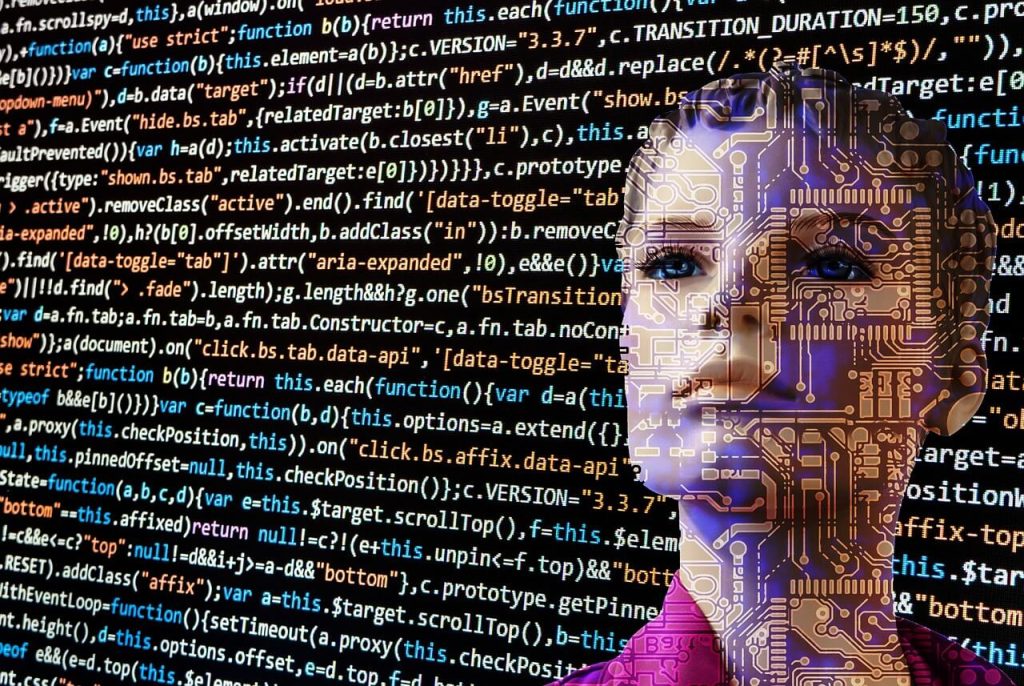The world of online sports betting has experienced significant advancements in recent years, thanks to the incorporation of artificial intelligence (AI) and sophisticated algorithms. These technological innovations have revolutionized the way sportsbooks analyze data and make predictions, optimizing the betting experience for millions of users worldwide.
Algorithms and AI systems in sports betting primarily focus on processing vast amounts of data, such as team statistics, player performance, and historical trends, to identify patterns that aid in making more accurate predictions about the outcomes of sporting events. This data-driven approach not only increases the potential for successful betting strategies but also helps maintain a competitive and dynamic market for both bettors and sportsbooks.
Furthermore, the impact of AI on sports betting extends beyond merely offering accurate predictions. It also contributes to improved customer acquisition and customization within the industry, ensuring that sportsbooks can tailor their offerings to individual users and attract a wider audience. As AI and algorithm-based technologies continue to evolve, it’s likely their influence on online sports betting will only grow stronger and more significant.
Role of Algorithms in Online Sports Betting
Odds Calculation
One of the key aspects of online sports betting is determining the odds for each event. Algorithms and artificial intelligence play a crucial role in this process by analyzing vast amounts of data, including past performance, team statistics, and player information. This information is used to identify patterns and trends that can be used to make more accurate predictions about the outcomes of sporting events and subsequently calculate fair odds for bettors and bookmakers alike.
Real-Time Data Analysis
Sports events, especially in live betting scenarios, generate large amounts of real-time data that require continuous analysis. Artificial intelligence systems are employed to process, filter, and analyze this real-time data in order to provide insights and updates for both bettors and bookmakers. This includes factors such as team performance, player injuries, and weather conditions affecting the game. Consequently, AI-driven systems help bettors make informed decisions and adapt their betting strategy while the event is still in progress [source].

Prediction Models
The use of AI-powered prediction models has arguably revolutionized the world of sports betting. These models utilize machine learning algorithms to analyze historical data and discern significant patterns or associations that can contribute to more accurate predictions. Furthermore, these sophisticated algorithms are continually refined to take into account new variables and uncertain factors, which ultimately leads to increased accuracy when determining the probable outcome of a particular sports event.
In summary, algorithms and artificial intelligence play a significant role in the world of online sports betting. They contribute to various aspects of the betting process, including odds calculation, real-time data analysis, and prediction model development. With the rapid advancements in AI and machine learning techniques, it is expected that their influence and presence in online sports betting will only continue to grow in the years to come.
Role of Artificial Intelligence in Online Sports Betting
Machine Learning
Machine learning has significantly impacted the sports betting industry by analyzing vast amounts of data and making accurate predictions. These algorithms can study:
- Team performance
- Player statistics
- Past trends
This helps bettors make more informed and wiser choices when placing bets.
Natural Language Processing
Natural language processing (NLP) enables AI systems to understand and interpret human language. NLP is beneficial in the sports betting industry because it:
- Analyzes news articles
- Comprehends social media sentiments
- Detects relevant information from unstructured data
With NLP, AI systems can collect useful data and predict outcomes by considering recent events and public opinions.
Pattern Recognition
Pattern recognition assists AI systems in identifying patterns and trends within collected past data. Examples of patterns recognized by AI in sports betting are:
- Winning or losing streaks
- Head-to-head matchups
- Common outcomes in specific conditions, e.g., weather or injuries
These insights enable bettors and sportsbooks to make better-informed decisions about odds and betting recommendations.

Impact on the Betting Industry
Improved Betting Experience
Artificial Intelligence (AI) has revolutionized the sports betting industry by providing myriad benefits to both bettors and bookmakers. The use of AI-powered algorithms to analyze vast amounts of data enables more accurate predictions, ultimately enhancing the betting experience for players. These algorithms can identify patterns in betting data that were previously impossible to discover, allowing bettors and bookmakers to make more informed decisions. Moreover, AI-driven analytics enable bookmakers to offer unique in-game betting opportunities, as well as bet simulation tools that increase user engagement.
Fraud Detection and Prevention
Another significant advantage of incorporating AI and algorithms in the sports betting industry is their ability to detect and prevent fraudulent activities. By analyzing user behavior patterns and identifying anomalous activities, AI systems can effectively flag potential fraud issues. This increased security fosters trust between bettors, bookmakers, and online platforms, ultimately contributing to the growth and sustainability of the industry.
Legal and Ethical Considerations
Regulation of Betting Activities
In many jurisdictions, online sports betting activities are subject to various legal regulations, which aim to protect both the integrity of sports and the interests of individuals who participate in betting activities. Some of these regulations include licensing requirements for operators, restrictions on certain types of bets or betting events, and measures to ensure the fairness of the betting market.
One of the concerns related to algorithms and artificial intelligence in online sports betting is their potential to facilitate problematic or unfair practices. For instance, AI systems might be used to create specialized algorithms that can influence betting odds, leading to market manipulations or an uneven playing field for customers (source).
To address these concerns, existing regulations have started to evolve, with more emphasis being placed on the accountability of operators that utilize AI in their betting platforms. For example, some jurisdictions require transparent disclosure of the algorithms used, as well as regular audits of the AI systems in place.
Responsible Gambling Initiatives
Alongside legal regulations, ethical considerations relating to responsible gambling play a key role in the use of algorithms and artificial intelligence in online sports betting. Operators are increasingly implementing responsible gambling initiatives to minimize the potential harm associated with gambling, particularly for vulnerable individuals or those at risk of developing gambling-related problems.
Some of these responsible gambling initiatives may involve the use of AI systems to:
- Monitor and identify potential problem gambling behavior in real-time, allowing for early intervention.
- Customize responsible gambling messaging and support tools tailored to individual players and their specific risk profiles.
- Detect and prevent underage gambling or self-excluded individuals from accessing betting platforms.
As part of their commitment to responsible gambling, operators should also ensure transparency in their use of AI, allowing customers to understand how the technology is being used, how it can impact their betting experience, and the steps taken to mitigate any potential risks or harms.
In summary, the role of algorithms and artificial intelligence in online sports betting raises important legal and ethical considerations around regulation and responsible gambling. Ensuring operators implement transparent practices and adhere to relevant regulations, while emphasizing responsible gambling initiatives, is vital in maintaining an ethical and fair online sports betting environment.

Future Developments
Emerging Technologies
Emerging technologies are playing a significant role in the evolution of online sports betting. One of the key advancements is the use of artificial intelligence (AI) in this industry. AI algorithms help in gaining insights and identifying patterns from betting data, which was previously impossible. This not only allows platforms to improve their predictive capabilities but also enhances customizability, offering personalized suggestions for bettors.
Another essential aspect that AI brings to the table is safeguarding the integrity of sports in the increasingly competitive gambling landscape. AI systems can detect suspicious gambling patterns and flag potential corruption, keeping illicit activities at bay.
Moreover, swarm intelligence is a novel approach to predictive analytics that emulates the decision-making process of groups, yielding more accurate predictions compared to individual judgments. It is a promising technology that can further improve the accuracy of sports betting predictions in the future.
Growing Market
As the online sports betting market continues to grow, the demand for more sophisticated and technologically advanced tools increases. This has led to a surge in the adoption of AI and other emerging technologies by sports betting platforms globally.
In addition to improving prediction accuracy, AI is also instrumental in streamlining operations for better efficiency and productivity. As more platforms invest in AI, bettors can expect new features, improved functionality, and a more seamless overall betting experience.
The future growth of the market will likely be driven by factors such as the legalization of sports betting in new regions, advancements in payment methods, and the continuous development of more accurate and reliable AI technologies.
In summary, the future of online sports betting hinges on the adoption and implementation of cutting-edge technologies, such as AI, that can streamline operations and dramatically improve the efficiency, accuracy, and security of the betting process. These advancements will contribute to the continued expansion of the industry, offering bettors a more sophisticated and enjoyable experience.

Hey there, I am Kevin. I was born in Massachusett but spent most of my life in North Carolina. I created this website, Pro Sports Group, in January of 1998 and maintained it since. Man, a lot as changed since then.

